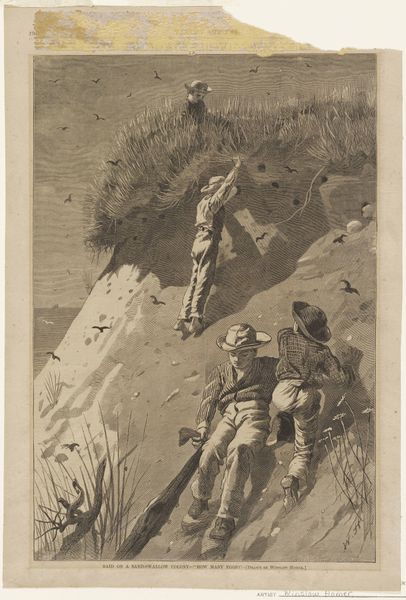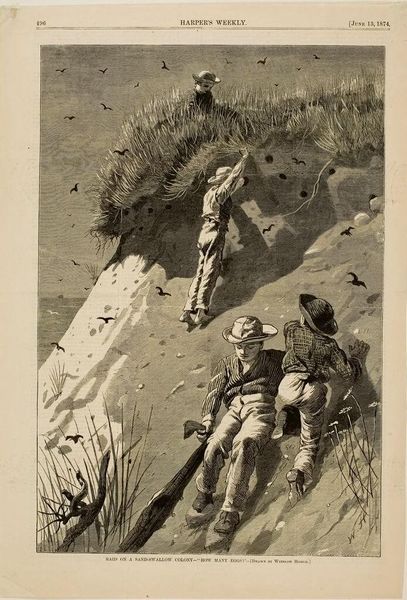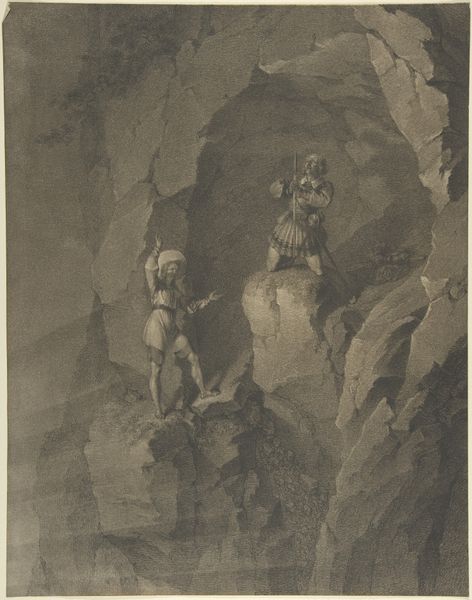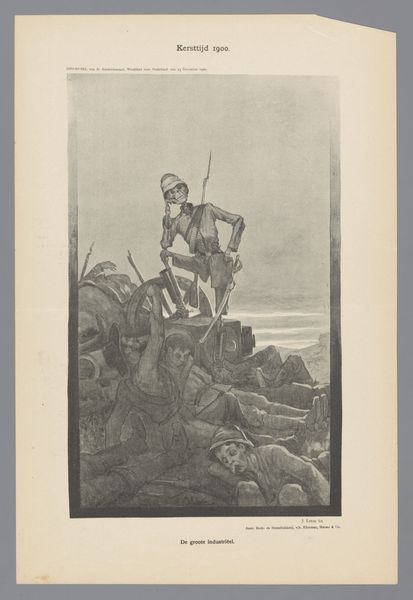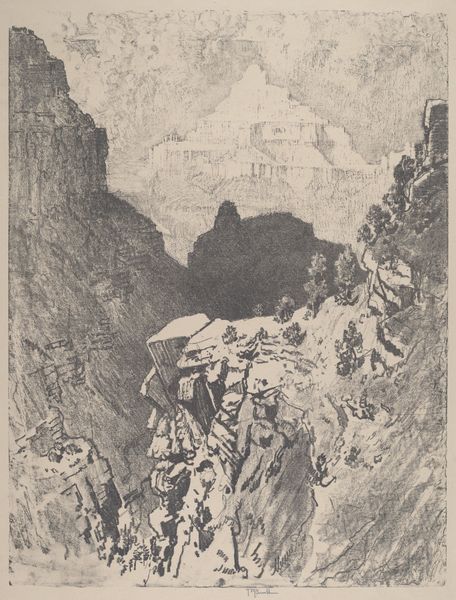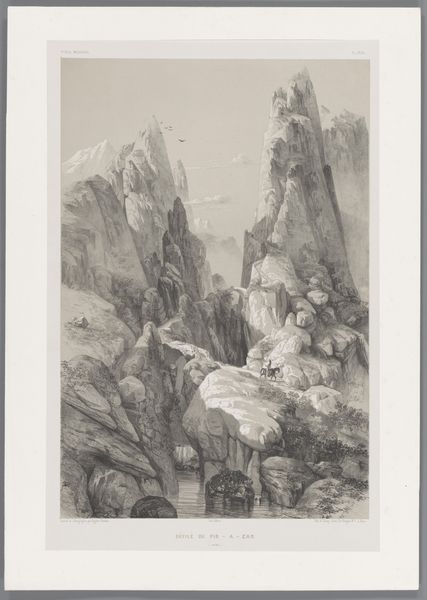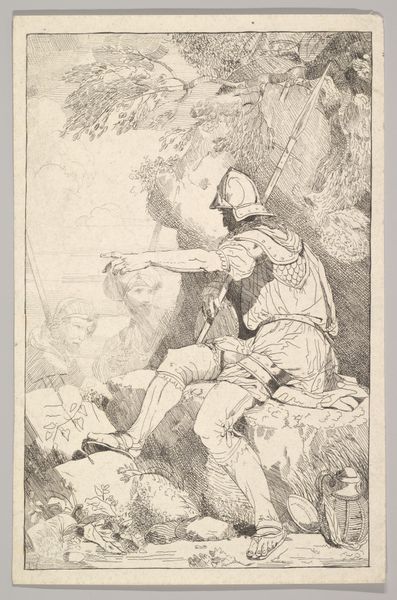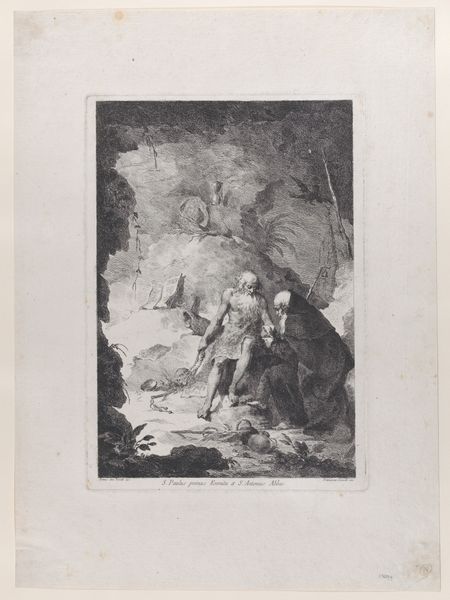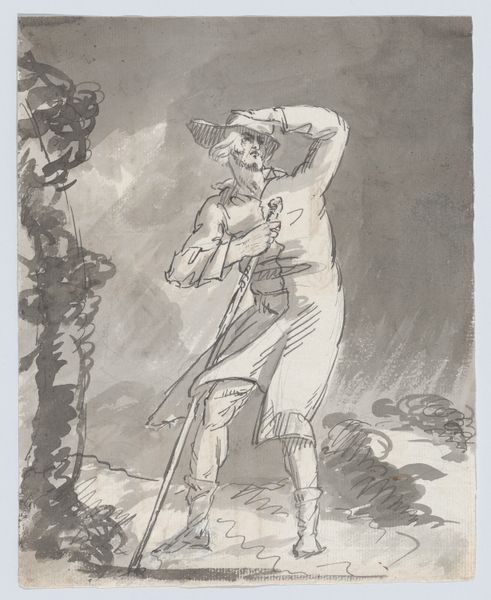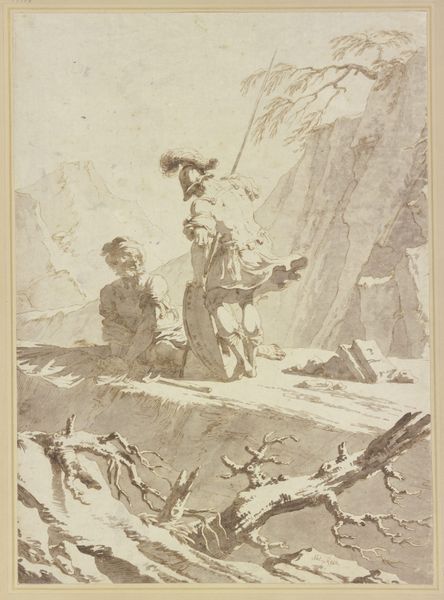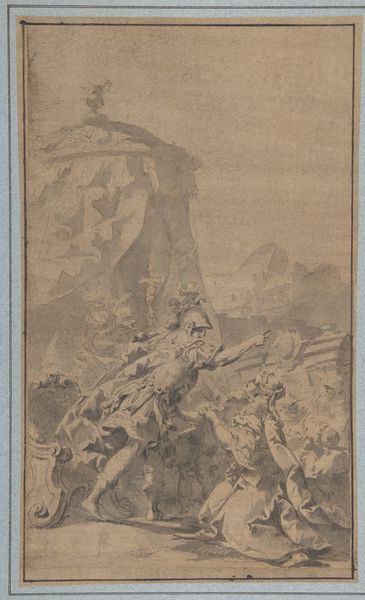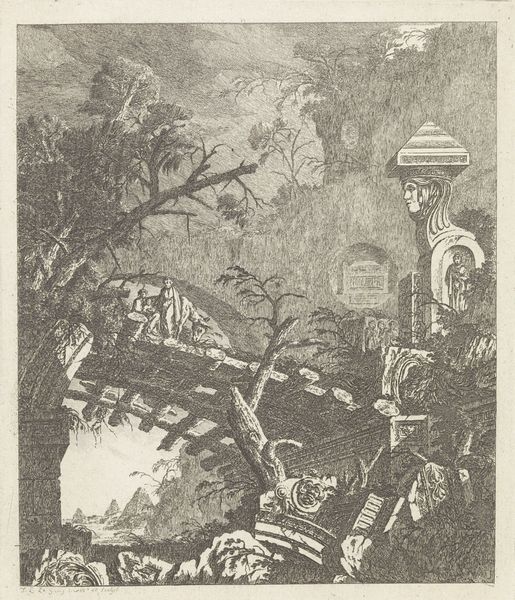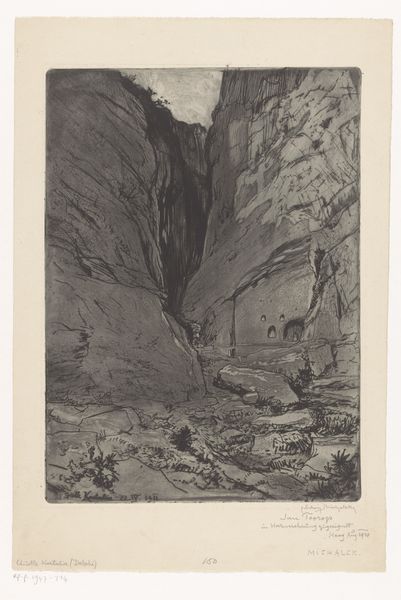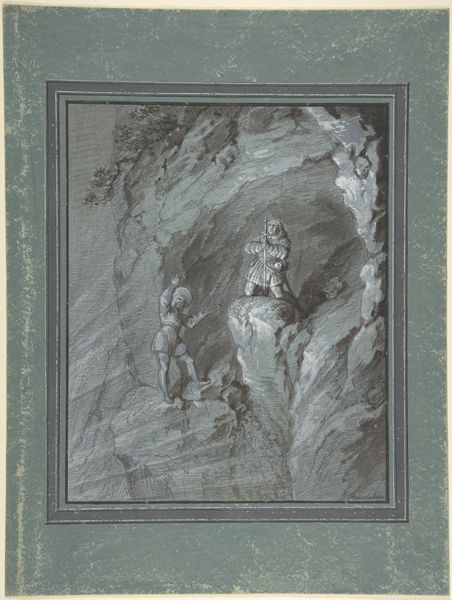
Raid on a Sand-swallow Colony – "How Many Eggs?" (from "Harper's Weekly," Vol. XVIII) 1874
0:00
0:00
drawing, print, plein-air, engraving
#
drawing
# print
#
impressionism
#
plein-air
#
landscape
#
bird
#
boy
#
historical photography
#
folk-art
#
plant
#
men
#
engraving
Dimensions: image: 13 3/8 x 9 1/8 in. (34 x 23.2 cm) sheet: 15 9/16 x 10 5/16 in. (39.5 x 26.2 cm)
Copyright: Public Domain
Editor: This is Winslow Homer’s print, “Raid on a Sand-swallow Colony – ‘How Many Eggs?’,” from 1874. It's a stark image, mostly grayscale, depicting boys raiding bird nests. It feels almost like a scene of conflict, but with nature as the victim. What’s your read on this piece? Curator: It's fascinating how Homer captures this moment. He’s not just showing a scene of youthful mischief. Consider Harper's Weekly, where this appeared. It was a period of intense debate about conservation and childhood development, specifically concerning boys raised with rifles, or in the outdoors. Images like this contributed to the evolving social narratives. Editor: So, it's more than just a picture of kids stealing eggs? Curator: Exactly. Think about the title, "How Many Eggs?" Is Homer celebrating this, or questioning it? Is he commenting on society’s relationship with nature and its exploitation, especially given the rising industrialization at the time? The image’s starkness can also be a statement on morality during a changing time in America. What are the implications of the location being set near a popular summer holiday resort in Long Island? Editor: That makes you look at the image in a different light. So many social issues condensed into one seemingly simple image. I was drawn to the boys, but understanding the historical context helps explain the artwork. Curator: Precisely. Art doesn’t exist in a vacuum. Examining its socio-political context gives us a far greater and richer appreciation. Hopefully now more will become conservationists for our planet and stewards for society.
Comments
No comments
Be the first to comment and join the conversation on the ultimate creative platform.
